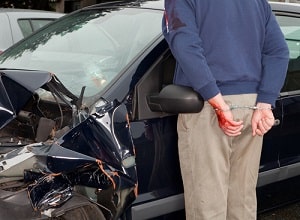2591 Dallas Parkway, Suite 207A, Frisco, TX 75034
Free Consultations
469-333-3333
 |
DO I HAVE TO GO TO TRIAL IN TEXAS? |
What Are the Consequences of Intoxication Manslaughter Charges in Texas?

One of the most serious offenses related to DWI is intoxication manslaughter. This is the primary reason people are pulled over for driving while intoxicated in the first place: to ensure that deaths resulting from impaired drivers do not take place. With Texas leading the nation in traffic fatalities and the country itself seeing an increase in such tragedies by nearly one-third over the last decade, you or someone you know could be faced with the consequences of intoxication manslaughter if you are involved in an accident. Therefore, it is important to know how Texas law defines this crime and its potential penalties.
Manslaughter Versus Murder
Before understanding intoxication manslaughter, it is helpful to know the difference between manslaughter and murder. While both manslaughter and murder result in someone’s death as a consequence of actions taken by the defendant, in the case of murder, the accusation implies that the defendant had malicious intent. With the crime of murder, the prosecution alleges that it was the defendant’s goal to kill the other person; however, with manslaughter, the death is considered a result of alleged recklessness on the part of the defendant. In regard to intoxication manslaughter, a death in a car accident while a person is impaired is typically not considered murder. Instead, it is usually considered manslaughter, since the majority if not all of these cases lack malicious intent.
How Does Texas Law Define Intoxication Manslaughter?
According to the Texas State Penal Code, “intoxication manslaughter” is defined as an event in which all of the following stipulations are met:
-
A person operates a motor vehicle in a public place.
-
A person is intoxicated with a .08 percent or higher blood alcohol concentration (BAC) or has his or her functions significantly impaired by intoxication from drugs or alcohol.
-
While operating a motor vehicle under the influence of intoxication, a person causes the death of another by accident or mistake.
What Are the Penalties for Intoxication Vehicular Manslaughter in Texas?
Intoxication manslaughter in Texas is a second-degree felony carrying with it the possibility of the following penalties if convicted:
-
2 to 20 years in prison
-
Up to $10,000 in fines
-
License suspension for 180 days to 2 years
-
Between 240 and 1,000 hours of total community service
In addition, if the intoxication manslaughter results in the death of a first responder (on-duty firefighter, police officer, or EMS technician), the penalties are steeper, including five years to life in prison. It is worth noting as well that if you have prior offenses, especially similar ones, these punishments could be more severe. As you can see, the crime of intoxication manslaughter is taken very seriously in Texas.
Contact a Plano DWI Defense Lawyer
All drunk driving offenses are taken seriously in the state of Texas. If you or someone you know is facing intoxication manslaughter charges, and you need advice about your next steps, seek guidance from the legal team who wrote the book on DWI in Texas. As a Collin County intoxication manslaughter attorney with high success rates in DWI cases, the Law Offices of Biederman & Burleson P.L.L.C. know what it takes to help you achieve the outcome you need. Contact us today at 469-333-3333 for a free consultation.
Sources:
https://statutes.capitol.texas.gov/Docs/PE/htm/PE.49.htm#49.08
http://www.ncsl.org/Portals/1/Documents/transportation/Sanctions_for_Drunk_Driving_%20Accidents_6_2018_27135_.pdf
https://www.madd.org/wp-content/uploads/2018/07/Vehicular-Homicide.pdf
https://www.texastribune.org/library/data/texas-prisons/crimes/intoxicated-manslaughter-w-vehicle/90/


 600+ DWI & CRIMINAL DEFENSE TRIALS
600+ DWI & CRIMINAL DEFENSE TRIALS
















